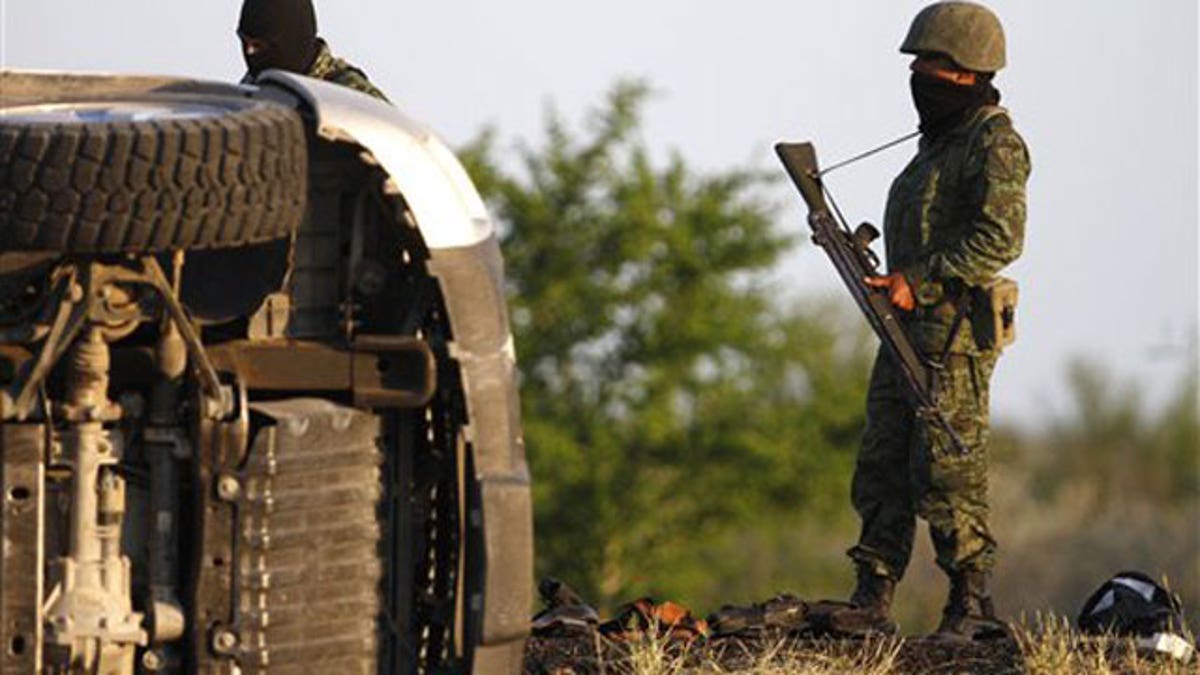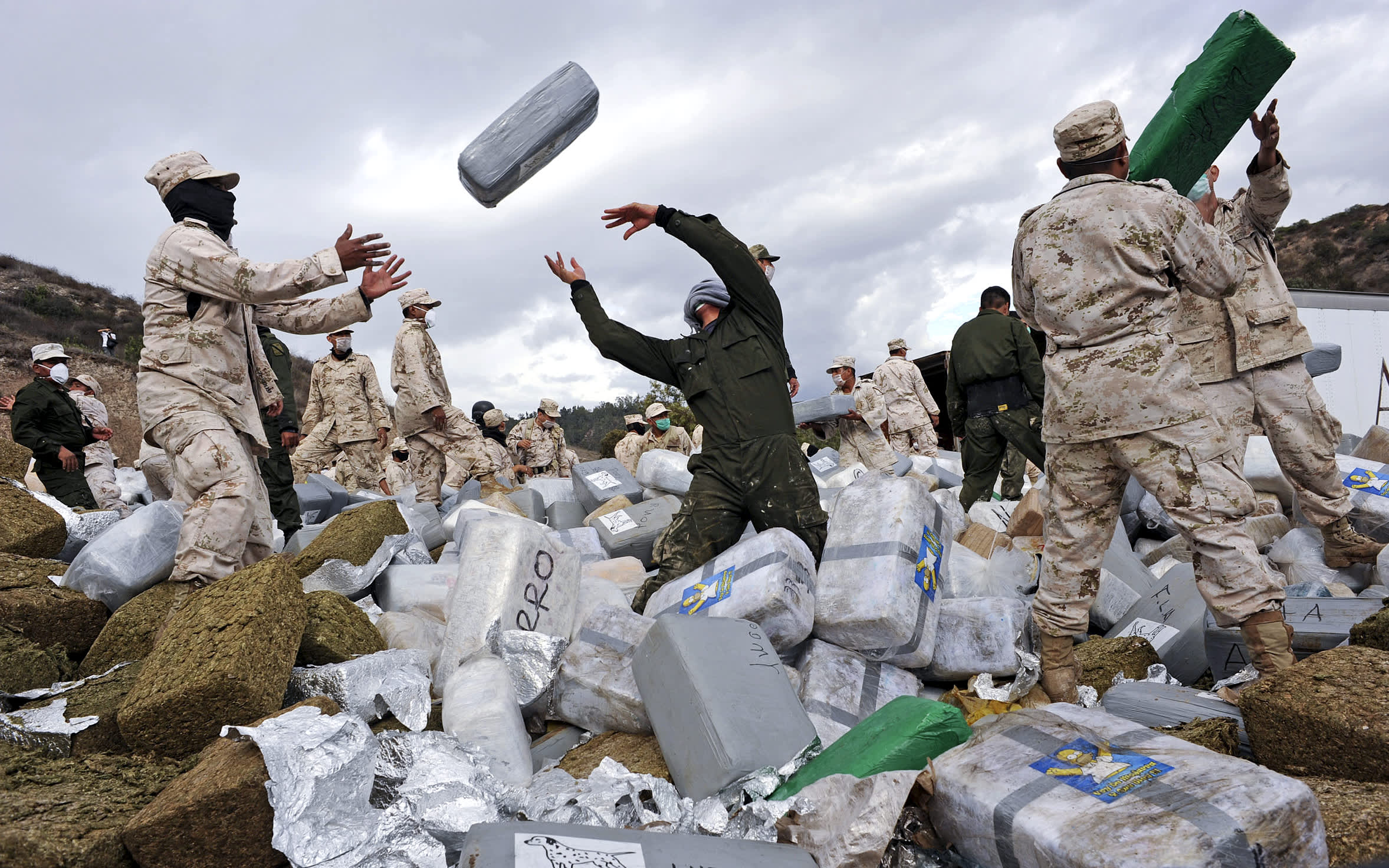Mexican Military Bases - MEXICO CITY - When President Andrés Manuel López Obrador took office, his top aides were tight-lipped. Mexico's security system is "in shambles," she warned. The murders were at a record high. Criminal groups have infiltrated local police forces. Tens of thousands of people were forcibly disappeared. In an analysis sent to the National Congress, they concluded that the country had "turned into a graveyard".
López Obrador, an icon of the Mexican left, has long been a critic of the US-backed war on drugs. "The soldiers must be brought back to the barracks," he insisted. But faced with the highest levels of violence in 60 years, he responded like his predecessors: he called in the military.
Mexican Military Bases

Two years into López Obrador's term, Mexico's armed forces have played a wider role in the country's affairs since the end of military-led government in the 1940s. The government has deployed record troops to deal with the worsening security situation. They patrol cities, attack drug labs and protect strategic installations. But it doesn't stop there. The military is increasingly the president's go-to force for tasks previously handled by civilian agencies, from operating ports to maintaining hospitals to building airports.
Data: Guns Recovered In Mexico Come Mostly From U.s. Makers
Members of the Mexican military load medical supplies into a Covid-19 air ambulance at Mexico City International Airport in August. (Jeoffrey Guillemard/Bloomberg News)
The military is now one of the biggest focal points in US-Mexico relations in recent years. Shocked by the US arrest of Mexico's former defense minister on charges of aiding drug cartels, the Mexican Congress passed a bill on Tuesday that could curb cooperation on drug trafficking and other crimes. López Obrador proposed the legislation.
The crackdown shows how US authorities underestimated the increasingly important role of Mexico's military. What looked like justice to US prosecutors was seen as undermining an ally in Mexico. The dramatic arrest of General Salvador Zinfuegos in Los Angeles has alarmed a host of politicians who worry that US drug agents are reaching deep into Mexican institutions and tapping their own phones. The case also underscores how difficult it is for U.S. law enforcement agencies to find reliable partners.
Under pressure from Mexico, the US relented by releasing the cinfuegos, but that did not quell the furor.
Mexican Drug Gangs Attack Army Bases Near The Border
"They didn't measure the strength of the Mexican military," said Catalina Pérez Correa, who studies drug policy at the Center for Research and Teaching in Economics.
General Salvador Zinfuegos, Mexico's former defense minister, speaks at an event in Mexico City in 2018. The general was arrested in Los Angeles in October in a drug-trafficking case.
In this sketch, the Zinfuegos appear in federal court in Los Angeles on October 16. After the withdrawal of the Mexican government, the U.S. Justice Department officials dropped the prosecution and sent the general back to Mexico.

General Salvador Zinfuegos, Mexico's former defense minister, speaks at an event in Mexico City in 2018. The general was arrested in Los Angeles in October in a drug-trafficking case. (Lujan Agusti/Bloomberg) In this sketch, Cienfuegos appears in a federal court in Los Angeles on October 16. After the Mexican government backed down, US Justice Department officials dropped the prosecution and returned the general to Mexico. (Bill Robles/AP)
China Pushes For U.n. Arms Embargo On Haiti Criminal Gangs
Long before the Cienfuegos case, citizen groups and security analysts had expressed concern about the impact of the military's growing influence on Mexico's fledgling democracy.
"The question we have to ask is, as their role continues to grow, will the armed forces eventually have more power than the president," said Ernesto López Portillo, head of the Civil Security Program at the Ibero-American University .
Militarization carries several risks: Analysts fear that civilian oversight will decline as more government functions are transferred to the armed forces. Soldiers trained to use overwhelming force against the enemy are routinely accused of human rights abuses.
Perhaps most importantly, reliance on the military is unlikely to solve Mexico's most pressing problem: Criminal groups gaining more control over the country's territory and unleashing extreme violence. While leaders rely on armed forces, they do not focus on developing professional police forces or effective justice systems.
Soldiers Stand In Formation As A Pile Of Marijuana And Other Drugs Are Incinerated At The 20th Cavalry Regiment Military Base In Ciudad Juarez March 18, 2010. More Than Twos Ton Of
Mexico's militarized security strategy dates back 14 years, since President Felipe Calderon sent troops to the streets to fight drug cartels. Authorities at the time described it as a stopgap measure until the country could build a civilian security force.
Since 2006, the Department of Defense's budget has doubled to about $5.6 billion. But the police and justice systems are inefficient and corrupt. The National Police, once intended to be a kind of Mexican FBI, infiltrated drug cartels; López Obrador replaced the army with a new National Guard whose members are mostly drawn from the military.
Neighbors watch as members of the military arrive at the scene of a shooting in August in the city of Zacatecas. Murders in Mexico hit record highs during Lopez Obrador's presidency.

A demonstration in Mexico City to protest the disappearance of 43 students from the city of Ayotzinapa in 2014. A special prosecutor linked local, federal police, military officers and a former judicial official to the disappearances.
Troops Patrol Tijuana As City Emerges From Cartel Fueled Night Of Terror
A National Guard car drives through a cardboard cutout that simulates a patrol patrolling a highway. López Obrador built his national security program around the armed forces and Mexico's new National Guard.
Still, critics say the armed forces have been ineffective in reducing violence. The major drug cartels that once dominated crime in Mexico have, by some estimates, split into more than 200 armed groups and branched out into new crimes. Hundreds of thousands of Mexicans moved to escape robberies, kidnappings and extortion.
Mexican officials say they have no choice but to make the military the backbone of their security policy. They say it is the only agency in the country with the discipline and training to take on dangerous criminal groups.
"It would have taken years to build a civilian police force," said a senior Mexican official, speaking on condition of anonymity. "We need to act immediately."
Mexican Soldiers Stand Guard In Front Of Packages Of Marijuana Before The Drugs Were Incinerated At A Military Base In The Border City Of Ciudad Juarez April 7, 2009. More Than 18
The US government has a mixed relationship with Mexico's military and law enforcement agencies. Washington has spent millions of dollars on training and technical assistance for Mexican police and law enforcement officials in recent years. While some progress has been made, the impact of aid is "unclear," the Western Hemisphere Drug Policy Commission, an agency chartered by the US Congress, reported this month. In the absence of reliable civilian partners, US agents have worked particularly closely with the Navy, which is considered more effective than other forces in apprehending drug kingpins. Some say this has led to a vicious cycle in which the military increasingly dominates security and civilian institutions retreat.
Aerial view of a Mexican Navy ship collecting seaweed off the coast of Cancun. Among other tasks undertaken by Mexico's armed forces: fighting fuel theft and renovating hospitals for Covid-19 patients. (Alejandro Segara for The Washington Post)
Unlike other Latin American countries, Mexico's generals have shown little interest in holding political office or controlling politics. Almost no one here fears a military coup. In the Cienfuegos case, López Obrador has promised to actually investigate anyone named in the case. Faced with an outcry from the generals, he soon reversed course and began to question the validity of the prosecution. There was no violent confrontation with López Obrador, said one of the president's aides, who spoke on condition of anonymity to discuss domestic affairs. "It wasn't that clear," the aide said. "But he understood their unhappiness."

Under a decades-old arrangement, the armed forces remain loyal in exchange for being allowed to run their own affairs. They do not answer to a civilian defense minister. Congressional oversight is weak. Few soldiers accused of crimes or human rights abuses have been convicted.
The U.s. Is Organizing A $5 Million Gun Sale To Mexico Forces Accused Of Murder And Kidnapping
Analysts worry that the military may begin to flex its muscles by wresting control of security policy from civilian leaders or starting to speak out on political issues. Meanwhile, as the institution plays a larger role in Mexican life, it is increasingly exposed to corruption by drug cartels and other forces.
The Cienfuegos case "will strengthen them even more," Eduardo Guerrero, a security analyst in Mexico City, said of the armed forces. "If they see that even the Americans are giving in by lobbying President López Obrador and finally handing over the Minister of Defense, they will say "OK!" There is complete impunity".
The Mexican left has been suspicious of the military since the 1960s, when it called for a crackdown on demonstrations. Even after López Obrador won the presidency in 2018, he remained ambivalent about one of the country's most respected institutions: "If it were up to me, I would get rid of the military."
But he had long seen the military as less corrupt than the police. After López Obrador's election, a senior Mexican official said: "We have seen the reality: the police in Mexico are being infiltrated by organized crime".
Mexican Marines, The Most Trusted By The U.s. Government, Conduct Raids In Various Locations In Search Of Cartel Lieutenants [1200x900]
Members of Mexico's National Guard arrive for a 2019 ceremony in Mexico City. Part of the guard
Us military bases map, toxic military bases, us overseas military bases, military bases with lodging, american military bases, air force military bases, hotels on military bases, army military bases, united states military bases, jobs at military bases, military bases, civilian jobs military bases
0 Comments